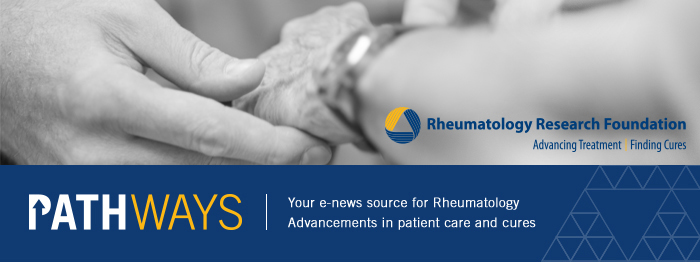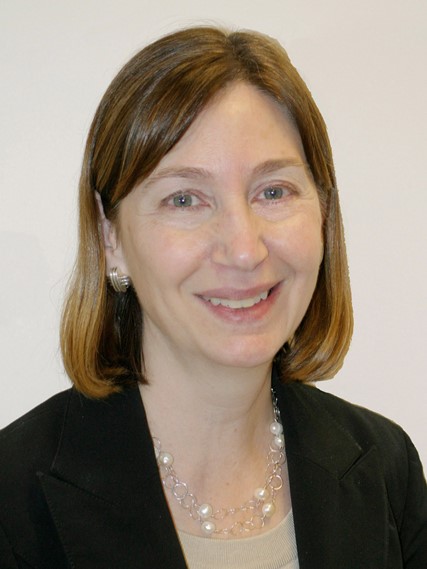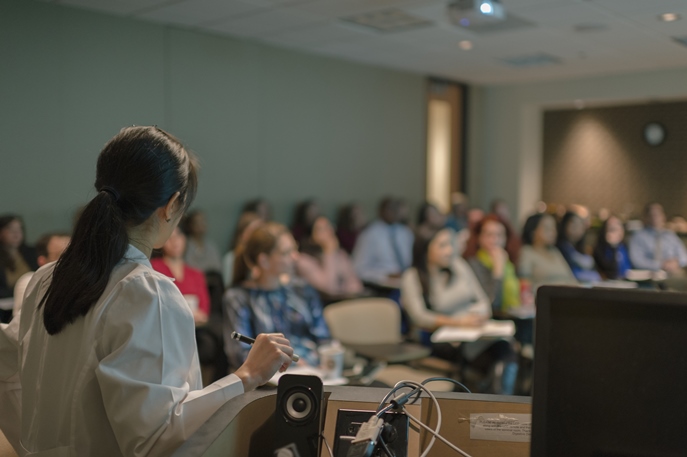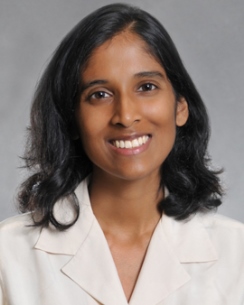Pathways

Volume 5 • Issue 8 • August 2016 • Rheumatology Research Foundation
Progress in Joint Damage Intervention: Researcher Spotlight
|
 Ellen M. Gravallese, MD Ellen M. Gravallese, MD
|
Establishing effective treatment often begins with determining how serious complications of a disease are initiated. Research funded by the Rheumatology Research Foundation is exploring the cause of debilitating joint loss frequently associated with rheumatoid arthritis.
Ellen M. Gravallese, MD is investigating the pathways that cause rheumatoid arthritis joint damage and exploring options for damage intervention. By studying molecules involved in bone cell regulation, Dr. Gravallese and her team are forming novel approaches to targets in disease treatment.
"The impact on patients for the research that I'm going to be doing really has to do with protecting their joints. We still see joint damage occuring," explains Dr. Gravallese. "What we're looking at is pathways that we can actually target to prevent that from happening."
Dr. Gravallese is Chief of Rheumatology at the University of Massachusetts and recipient of an Innovative Research Award. This award grants two years of funding and encourages independent researchers to explore unique ideas in rheumatology that will generate new insights into disease cause, progression and treatment.
"The Innovative Research Award allows researchers to pursue areas that might be very novel — very out there sometimes — but ideas that may actually change the field," says Dr. Gravallese. "It allows them to pursue areas that they may not otherwise be able to pursue."
Because Dr. Gravallese's research was in its early phases of development her funding sources were limited, "That's the hardest type of research to get funded. Some of your best ideas go by the wayside because you can't find organizations to support them.
"What makes the Foundation so unique is that the funding that has been generated is being put towards very novel, cutting-edge and sometimes high risk, high reward research and that research can change the field."
Through Dr. Gravallese's work, the rheumatology community is one step closer to understanding the pathogenesis of joint damage. With the knowledge of how joint damage begins, researchers can explore how to intervene on this process and discover new treatment options for rheumatoid arthritis patients.
Meet people who are living with rheumatic diseases, and learn what the Foundation is doing to help. In this "Rheum Life" series, we will share patients' perspectives of life with rheumatic disease and feature the Foundation-funded researchers who are working to advance treatments and find cures. Visit the improving patient care page to to read more stories, or share your experience by emailing us.
#RheumLife: Curbing Misdiagnoses

Accurate diagnoses are a struggle for many patients, a number of whom spend years seeking an explanation for their symptoms. Misdiagnoses are not only frustrating, but can have long-term effects when diseases go untreated. Foundation efforts in recruitment and education are working to change that.
|
 Tessa Capel Tessa Capel
|
Patient Perspective
When Tessa Capel began showing signs of rheumatic disease, the family practice doctors she visited were doubtful a 21 year old had arthritis. For the next few years, every flare would send her to a doctor; every time, she left their offices with no more answers than when she arrived. Her pain and malaise were always attributed to something else. Finally, an urgent care practitioner took a closer look at her blood work and gave her the diagnosis she had been searching for all her young adult life: rheumatoid arthritis. "I was so relieved to finally have someone listen to me. That saw past my age and listened. I have a long road ahead of me but I am hopeful for advancements and treatment."
|
 Dr. Arudathi Jayatilleke Dr. Arudathi Jayatilleke
|
The Efforts to Help
Arudathi Jayatilleke, MD of the Drexel University College of Medicine is developing an online game to teach medical students how to conduct exams for patients with rheumatoid arthritis. The platform will teach elements of the musculoskeletal physical exam through case study simulations. This interactive game will expose future doctors to rheumatic diseases and will better prepare them to diagnose and treat patients like Tessa. Exposure to elements of rheumatology during medical school can not only decrease misdiagnoses, therefore shortening the gap between symptom onset and treatment, but can also encourage more students to join the subspecialty.